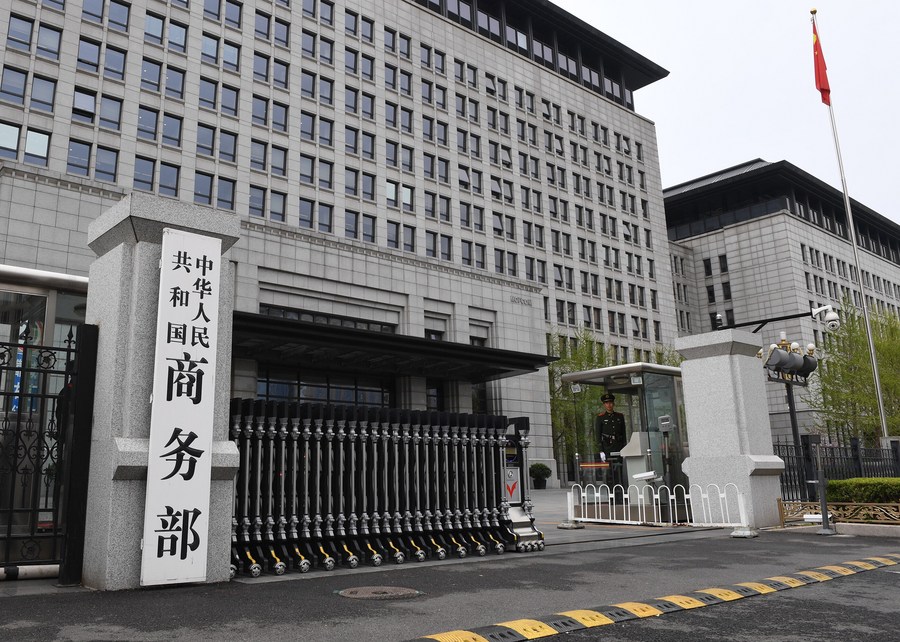
The United States' decision to add dozens of Chinese entities to its export blacklist will disrupt the security and stability of global industrial and supply chains, said China's Ministry of Commerce.
The US Department of Commerce's Bureau of Industry and Security (BIS) on Tuesday added 80 entities to its export control Entity List, including the Beijing Academy of Artificial Intelligence and six subsidiaries of Inspur Co Ltd, a Chinese cloud computing and big data service provider.
ALSO READ: China slams US report calling Beijing a top threat
According to a statement from the BIS, the entities - located in China, the United Arab Emirates and South Africa, as well as other countries and regions - were listed for alleged activities deemed "contrary to US national security and foreign policy interests".
In an online statement, a ministry spokesperson urged the US to immediately stop its wrongful practices and will take necessary measures to resolutely safeguard the legitimate rights and interests of Chinese entities.
The commerce official said that the US' move is intended to suppress and contain foreign entities and to deprive them of their legitimate right to development.
READ MORE: US urged to beware of brunt of its tariff policy
In another development, Chinese Vice-Premier He Lifeng held video talks with US Trade Representative Jamieson Greer at the request of the US side on Wednesday. The two sides exchanged candid, in-depth views on important bilateral economic and trade issues, according to a separate statement released by the ministry.
He, who is also the Chinese lead for China-US economic and trade affairs, expressed grave concern over the additional US tariffs imposed on Chinese goods due to the fentanyl issue, the Section 301 investigation and the proposed "reciprocal" tariffs.
READ MORE: Engagement key for stable ties with US
He said China hopes the US side will soon return to resolving shared concerns through mutual consultation.
Meanwhile, Greer said that candid talks are important as they can boost mutual understanding and help resolve emerging issues.
Both sides affirmed that maintaining a stable bilateral economic and trade relationship serves the interests of both countries, and agreed to continue communication on issues of concern.


